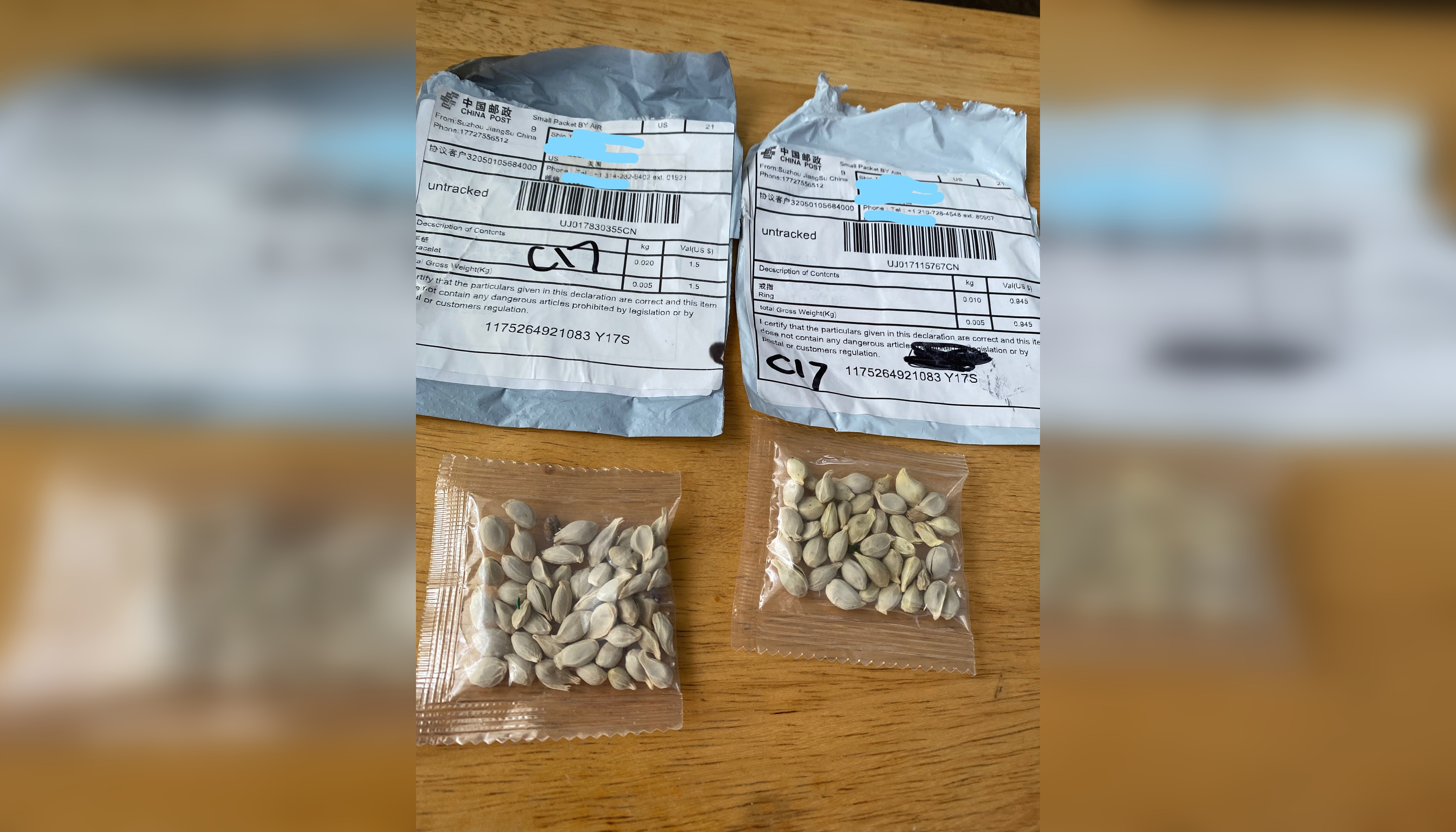
Why "Mystery Seeds" From China Are Popping Up in People's Mailboxes
August 12, 2020
 By Darren Tooley
By Darren Tooley
Vice President - Ag LendingHave you received any “mystery seeds” in your mailbox lately? If so, you're not alone.
According to the U.S. Department of Agriculture (USDA), thousands of people across the country have reported receiving suspicious, unmarked and unsolicited packages of seeds that appear to come from somewhere in China. The strange seed packages have popped up in mailboxes across at least 22 states, including Iowa — for no apparent reason.
Seeds are likely a “brushing scam”
The Federal Trade Commission (FTC) says the mystery seeds appear to be part of a global “brushing scam,” which happens when your name and mailbox are used as props in a fake purchase.
In a brushing scam, a shady company will pay itself for an online order, send an unsolicited package to you as cover and post a fake positive review online in your name — all to get a boost in search results for online stores like Amazon (better reviews = higher search rankings and potentially more business). If Amazon tries to verify the review, the scammer then uses the mail tracking number from the fake order to “prove” that a purchase and delivery were made.
Brushing scams can involve more than just seeds. In fact, the Better Business Bureau (BBB) reports people have received a number of other items in unmarked packages lately, ranging from ping pong balls to masks. However, the mystery seeds seem to be popping up the most.
What to do if you receive mystery seeds:
If you receive strange seeds in the mail, do NOT open them, do NOT throw them away and do NOT plant them. Instead, follow the USDA's advice and forward the package to its closest office:
- Place all materials (seeds and packaging) inside a larger mailing envelope. If you already opened the package, place the seeds and packaging into a new zip-lock bag to re-seal.
- Include your name, address and phone number so an Ag official can contact you for additional information, if needed.
- Mail the envelope to the closest USDA office in your state (use the USDA's location finder).
If for some reason you are unable to mail the package, you should reach out to your local state plant health director to arrange a no-contact pickup or drop-off location.
It's very important that you don't plant the seeds, even if they seem harmless. Foreign seeds could carry seed-born viruses, other diseases or invasive plant species that endanger agriculture and natural resources in your area.
Are the seeds a health risk?
Officials aren't aware of any human health risks, but the USDA recommends to wear gloves when handling the mystery seed packages, out of an abundance of caution.
So far, investigators have identified harmless seeds of at least 14 different plant species in the strange packets — ranging from vegetables and herbs like cabbage, rosemary and sage; to flowers like roses and hibiscus. Still, it's best to be cautious.
Brushing scams: What else can you do?
At a high level, there's not much you can do to avoid brushing scams, since your name and address are available in so many different places. Just to be safe, if you do receive an unsolicited package, you should change the password on all of your online accounts — especially your financial ones and shopping sites like Amazon and eBay.
If the package includes other personal information, like your phone number, you can file a complaint with the FTC. You should always monitor your online accounts for fraudulent activity (SNB makes this easy with online and mobile banking). And if the package comes with a return address of an online seller like Amazon, notify that company so they can investigate the fraud.
Finally, remember that a company can never demand a payment for sending you an unsolicited package that you never ordered. If somebody does this, it's a scam.
PHOTO CREDIT: U.S. Department of Agriculture
Was this article helpful?
Stay up-to-date with the latest scam updates and fraud prevention tips by subscribing to our Security Matters newsletter.